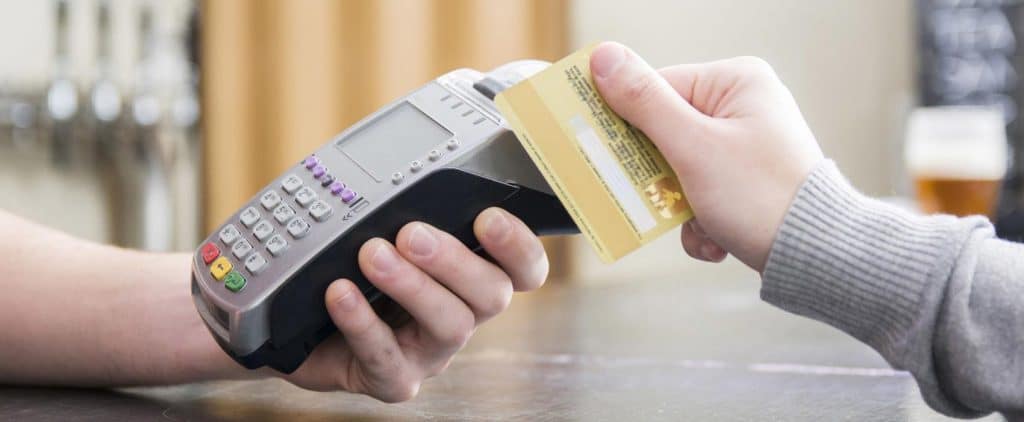
Should You Use Your Business Credit Card for Personal Expenses?
Keeping your business and personal finances separate is age-old advice. It’s sometimes easy to blur the line, though, especially for small business owners and independent contractors. Most people with a business card wonder if it’s really such a bad idea to use it for personal expenses.
There are some advantages to charging personal expenses on your business card, but there are also a number of risks. If you’re wondering whether you should use your business card on something personal, you should understand how business and personal cards differ and what may happen if you violate your card agreement.
Pros of Personal Spending on Business Card
One of the main reasons people put personal charges on their business card is because it protects their credit score. Most credit card companies only report business card activity to business credit bureaus. You don’t have to worry about your personal score dropping unless your business account becomes delinquent. Making purchases on your business card can help you protect your own credit score by keeping your utilization low.
Business cards often have higher rewards, bonuses, and incentives. If you make a lot of purchases, this can add up. Business cards often have higher credit limits, too. The benefits of the business card may be much better than a personal card if you don’t have a high credit score.
Cons of Personal Spending on Business Card
The cons of personal spending on your business card definitely outweigh the pros. This can lead to messy finances and complicated taxes. You’ll have to comb through your credit card statements to separate all of the business and personal purchases, which is tedious and time-consuming. If you overstate your business expenses on your taxes because they’ve been mixed up with personal spending, you may increase your risk of an audit.
Most business cardholder agreements prohibit personal spending on the card. If the lender discovers that you broke your agreement, they may cancel the card. Some business cards have higher fees and interest rates, too.
Business cards have fewer protections than consumer cards, so it’s much safer to use a personal card whenever you can. The Credit Card Act of 2009 outlined many consumer protections, but not all of them apply to business cards. Your credit card company can raise your interest rate and lower your credit limit at just one sign of financial hardship. They also can charge over-limit fees, and there’s no cap on late fees.
Mixing business and personal spending can even lead to legal issues. If you run a corporation or limited liability company, you aren’t personally responsible for your business debts. Typically, someone who sues your company can only recover from your business assets. However, if you’ve used your business funds for personal expenses, the court may open up your personal assets for recovery.
What You Should Never Charge to Your Business Card
It’s very difficult for a credit card issuer to tell whether a purchase you make is for personal or business reasons. However, there are some purchases that are more likely to land you in hot waters than others.
You should not put extra personal expenses from a business trip on your business card. Many people like to add a few extra days to their trip just for fun, but putting these charges on your business card is a slippery slope. The expenses can quickly add up.
Be careful with client entertainment as well. This is a valid expense within reason, but dinners every night or multiple trips per year is excessive and may look suspicious to your credit card company.
Try to avoid using your business card for big purchases, too, especially personal ones. Although your business card may have a lower interest rate than a personal card, it’s still much higher than a loan. Big purchases can accrue a lot of interest if you carry the balance for more than a month.
Should You Charge Your Business Card for Personal Spending?
To be safe, you should not use your business card for your personal expenses. Occasional purchases probably won’t raise any red flags with your credit card company, but it’s easy for the personal spending to get out of control.
To avoid impulse purchases, you should have clear boundaries for what does and doesn’t count as a business expense. Keep your business card separated from your personal card in your wallet so that you don’t grab it accidentally. Each month, review your credit card statement carefully to make sure there weren’t any personal purchases.
When you put personal expenses on your business card, you complicate your taxes, violate your cardholder agreement, and put your limited liability status in jeopardy. To keep your finances safe and organized, it’s best to keep your business and personal spending separate.
Final Thoughts
At Bumgardner Morrison, we’re here to assist with your accounting service needs. If you have questions about your business credit card spending or are looking to get your business finances in order, contact us today to schedule a consultation.
